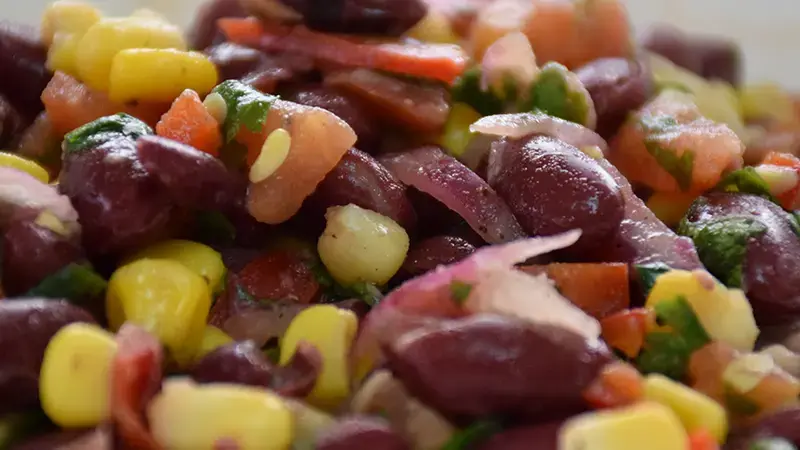ICARDA kicks off IYP 2016 with Pulses Potluck

To kick off the 2016 International Year of Pulses (IYP 2016), ICARDA staff in Amman held an all-pulses potluck with our Director General Mahmoud Solh. The IYP 2016 aims to increase public awareness of the triple benefits of pulses as a part of nutritious diet, sustainable environment, and the added income they provide to farmers worldwide.
Among the many dishes on the menu at ICARDA’s staff potluck were sambhar, a South Indian spicy and tangy dish commonly eaten with rice, and usal, a traditional Indian street food with sprouted mung bean.
Pulse crops such as lentils, beans, peas and chickpeas are a vital source of plant-based proteins and amino acids for people around the world. Not only do they help prevent and manage chronic diseases such as diabetes, coronary conditions and cancer, their nitrogen-fixing properties contribute to increasing soil fertility and are beneficial to a healthy environment. Their rich content of micro-nutrients, such as iron and zinc, can play a powerful role in combating anemia widespread in developing countries.
Dr. Mahmoud Solh and his wife prepared ful bel-laban, a traditional Lebanese dish of meat-based broth with chunks of meat or lamb shanks. Faba beans are then added with yogurt, egg and spices.
Other dishes included falafel, a popular snack in the Middle East made with chickpea, lentil soup, and a colorful bean salad.
ICARDA is at the forefront of pulses research in drylands, working primarily on four crops – lentil, chickpea, and its mandate crops of faba bean and grasspea. Joining FAO at the launch event of IYP 2016in Rome on November 12, ICARDA is looking forward to an year full of activities and engagements with partners and stakeholders to actively promote pulses and increase their production in the developing world.
A signature event for pulses in drylands will be held in Marrakesh, Morocco, April 18-20. The International Conference on Pulses for Health, Nutrition and Sustainable Agriculture in Drylands is being organized by ICARDA, Institut National de la Recherche Agronomique, Morocco, and IFAD in partnership with FAO, OCP Foundation and CGIAR Research Program (CRP) on Grain Legumes.
